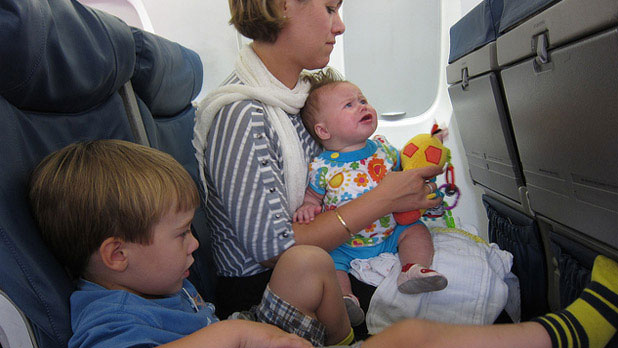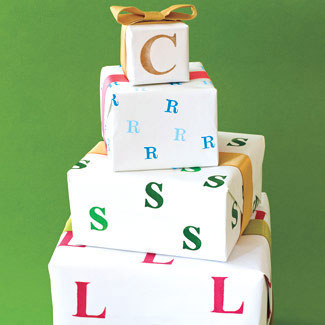When you are a new parent, especially for the first time, you will have a mixed feeling of excitement and challenge. However, it is true that as soon as you bring your newborn home, your life changes. Read on to get baby care tips so that you get right infant development and care.First time parents have to face new challenges each day. Baby care tips on how to handle these challenges, will reduce the stress for the parents to a great extent. The right resource will help you make your time together relaxed and special as well.
So, read and learn all the baby care tips and gather relevant information so that you enjoy this wonderful time of your life and your baby’s life.
Baby’s Diet
Understanding baby’s cues and feeding her from time to time is very necessary. Crying is one of the signs that your baby is hungry. For a newborn, breast milk is the best because it contains all necessary vitamins and minerals that are required for the right development and growth of the infant. Most of the paediatricians recommend mothers to breastfeed their babies for at least 6 months. However, infant formulas are available for those mothers who can not to breastfeed their babies. In case if you are unable to breastfeed your baby, you must avoid bottle feeding and feed your baby using wati-spoon.
Burping the Baby
It is very important to know how and when to burp a baby because while gulping down formula or breast milk babies swallow air along with it. Babies feel uncomfortable when they swallow air and burping can help her get rid of at least some air that she has swallowed. It is advisable to burp your baby immediately after she is fed.
Hold your baby in an upright position preferably keeping her over your shoulder and gently tap her upper back. It may take some time for some babies. So, have patience while burping your baby. Do not worry if your baby brings a little bit of milk along with the burp. Keep a towel handy so that you can manage things effectively.
Breastfeeding Tips
Mothers who decide to breastfeed their babies get the chance to provide their children an important source of antibodies, colostrum, which is present in the early milk. This helps in strengthening your baby’s immune system. Along with this, breastfeeding helps in having a deep bonding with the child which lasts lifelong.
Even though breastfeeding is natural, it is not easy especially when it is your first time. Here are some tips to help you have a smooth nursing experience.
- Educate yourself even before the birth of your child with the help of articles, books and other reliable resources.
- When you start breastfeeding, make use of a pillow or other soft material to position your baby rightly.
- If you have any doubt or problem, ask the experts at the birth centre or get in touch with a lactation consultant.
- Keep track of the timing because initially you need to feed your infant in almost every two hours.
- If your newborn is done within few minutes, do not worry. She needs small amount of milk at this time.
- Do not forget to burp your child after feeding.
- When you are breastfeeding your child, make sure you eat well and drink lot of water as well.
Babies who are not breastfed should have only formula milk prescribed by a paediatrician. Make sure all feeding equipments are clean and sterilized before you feed your baby. However, you can connect with your baby with formula feeding also because it depends on how you feed her. Hold her close and enjoy the moment when you are bottle feeding her.
Introducing Solid Food
As soon as your baby is 4 month old, you should start giving her solid food after consulting a paediatrician. It is very important to learn what, when and how you should give. Between 4 – 6 months you can give her single-grain cereal which can be either mixed with formula milk or breast milk or even water.
Between 6 – 8 months you can start giving your child pureed and strained fruits. Wash the fruits and then boil, steam or bake it before giving to your child. Once she starts digesting these, you can slowly introduce solid food that is properly cooked and mashed before being given.
Baby’s Sleep
Newborns sleep for 18 – 20 hours a day and sleep is one of the most important aspects of your child’s development. Try to develop a healthy routine that fits in your lifestyle also so that you and your baby get as much rest as possible especially during the early days.
Babies need parents’ help to go to sleep and remain sleeping for a specific length of time. It is good to plan your baby’s sleeping pattern. Newborns sleep when they are tired and most probably they sleep for most of the time. It is only after the first few months that you can try and help your child have a proper sleeping pattern.
Watching out for indications that a child gives when she is tired and wants to sleep, will help you a lot to keep your baby calm and happy. So, get familiar with the sleep signals that your baby gives and put her down to sleep when you observe them. Remember that along with your baby, you need proper resting time too and so it is advisable to make yourself comfortable as well.
Baby’s Hygiene Care
Hygiene care of infants is very important. A newborn is very delicate and sensitive and even a slight lacking in cleanliness and hygiene might turn dangerous for the child. So, daily cleaning of baby’s eyes, ears, nose, mouth, tongue along with the entire body is advisable. Practicing a good hygiene routine will help you keep your child happy and healthy.
Baby’s Health Care
When it comes to health care of newborns you have to be very careful and alert. One of the most important things that you should keep in mind is about the vaccines and immunization. There are several vaccines and immunizations that are essential so that you keep your child protected from certain diseases that are contagious and dangerous as well.
Secondly, you should keep a first-aid kit ready for your baby which must include some basic medicines that are needed during emergency situations like accidental poisoning, bites, scratches or choking.
Crying and Colic in Babies
When you hear your baby cry, it is natural to get upset. However, there are many reasons why babies cry and this is because it is the only way in which she can communicate with you. So, she will cry when she is hungry, needs comforting, feeling cold or if she is unwell. If you observe your child closely you might find a difference between alarming and normal crying. So, find out the best way to soothe your baby.
Colic is uncontrolled crying and taking care of such newborns is a real challenge that parents face. However, this often fades once the child crosses 3 months.
Bowel Movements of Babies
There are no set rules for passing stools for babies. It depends on various factors and as long as the stool is soft and easy to pass, you need not worry about the frequency. On the other hand if your child passes running stools or turns red and pushes hard when passing stool, you need to take action. If you find anything abnormal in your child’s stool or when passing it, you should consult an expert with the symptoms.
Baby’s Skin Care
Your baby’s skin is amazingly soft and pure and so it needs gentle care. It gets easily damaged by dryness and exposure to harsh conditions. You can keep your baby’s skin protected at all times by following a good skin care routine for her. Use mild baby soap for bathing your baby and moisturize her skin after bath to help reduce dryness.
Protecting and Dealing with Nappy Rash
Nappy rash is one of the common problems that parents of newborns have to deal with. By watching out the material of the nappy and being alert of the leaks, you can protect your child from getting one.
Clean the area gently with baby wipes or damp wash cloth and use a barrier cream before you strap another diaper in. Be careful about baby’s laundry also and do not forget to disinfect child’s clothes. Make sure your clothes along with the bedding and other things that come in contact with the baby are clean.
Baby’s Laundry
When you are washing baby’s clothes, it is important you make use of the detergent that is free from perfumes and dyes. Make sure you clean baby’s clothes separately and disinfect them as well after cleaning.
Always keep dirty clothes of your baby in a separate bucket because you will need to change clothes of your newborn often within a day. It is good to keep baby’s clean clothes separately and in an organised way so that they are always ready at hands.
With so many baby products in the market it becomes really very difficult to figure out what you need to buy for your newborn. However, making a list of things that you need for your baby will help you save yourself from spending on that little extra things that are attractive but not of much use for a newborn.
When you learn about different aspects of your child’s care, it becomes easier for you to get along with an infant. The baby care tips explained above might be of help for you and help you take care of your newborn and keep her healthy and happy as well. There are guidelines that will help you make your life easier and smooth.
How to take care of a newborn baby? What are the essentials of a baby care regimen? How to find out if a newborn baby is well nourished? Discuss here. 





























